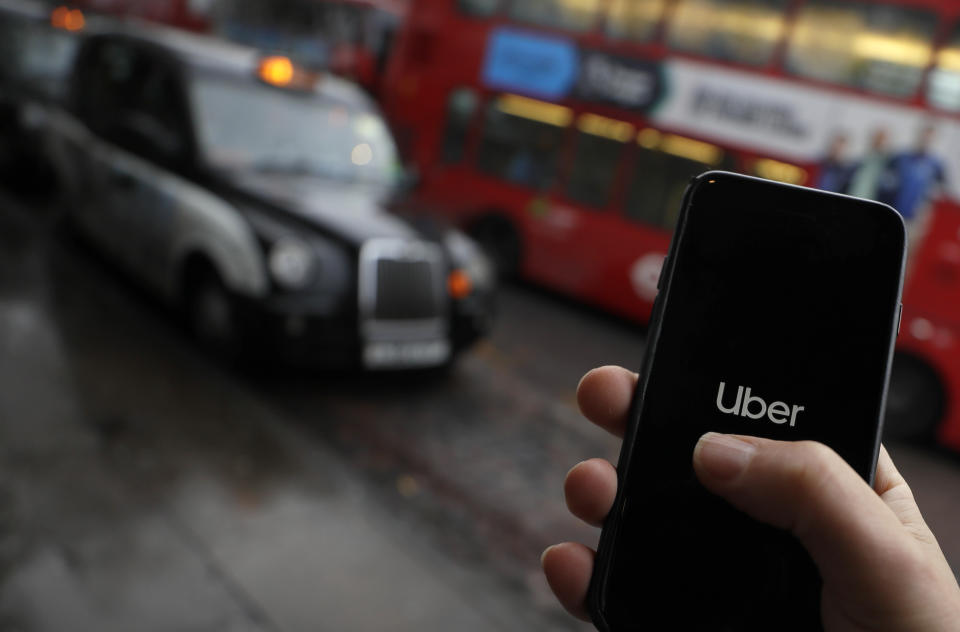UK Supreme Court to decide whether Uber drivers are workers

The UK’s Supreme Court on Tuesday will begin hearing an appeal brought by Uber (UBER) against an employment tribunal decision that found that the ride-hailing firm’s drivers are workers and not independent contractors.
The landmark case, which is expected to last just two days before a ruling is handed down, will have significant ramifications for the rights of millions of workers in the so-called gig economy, most of whom are not entitled to traditional employment protections.
The appeal follows a 2016 ruling at an employment tribunal that determined that a group of 19 Uber workers were actually employed by Uber, and not working for themselves.
Uber drivers are entitled to the minimum wage, paid holidays, and rest breaks, the tribunal found.
The original case was brought by two Uber drivers, James Farrar and Yaseen Aslam, on behalf of the group.
READ MORE: UK incomes suffer biggest drop in half a century
The ride-hailing firm subsequently lost two successive appeals at both the Employment Appeal Tribunal and the Court of Appeal, before being granted the right to appeal to the Supreme Court.
Judges at the Court of Appeal found that there was a “high degree of fiction” in the standard contract that Uber signs with its drivers, which supposes that they are self-employed contractors who do not accrue many employment rights.
The court is expected to rule in the case on Wednesday. Its decision will be closely watched by the company’s 60,000 drivers in the UK, as well as the estimated five million workers who earn their living from insecure contract work.
The case has the potential to upend the fundamental tenet of the gig-economy’s business model, which depends on flexible arrangements with workers, many of whom have other sources of income.
Uber believes that it should be treated more like an agency that connects passengers with drivers, and not as a firm that employs drivers.
READ MORE: EU agrees on 'historic' €750bn recovery package
Lower courts have simply misunderstood this relationship, Uber believes.
The ride-hailing firm notes that most taxi and private-hire drivers are self-employed, an arrangement that existed years before Uber arrived on the scene.
In March, Frances’s Supreme Court equivalent found in favour of an Uber driver who wanted to be recognised as a full driver, paving the way for other drivers to be classified similarly.
In California, a judge could in August issue an injunction against Uber unless it decides to reclassify its workers as employees.
The California Public Utilities Commission last month ruled that drivers with Uber and rival ride-hailing firm Lyft were employees under a new law that categorises many independent contractors as employees.

 Yahoo Finance
Yahoo Finance 
